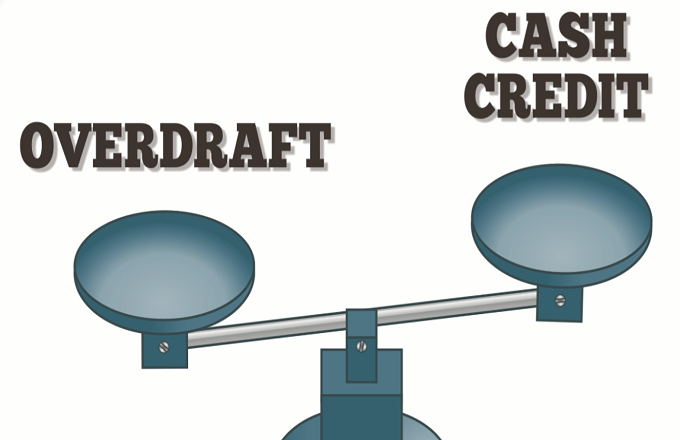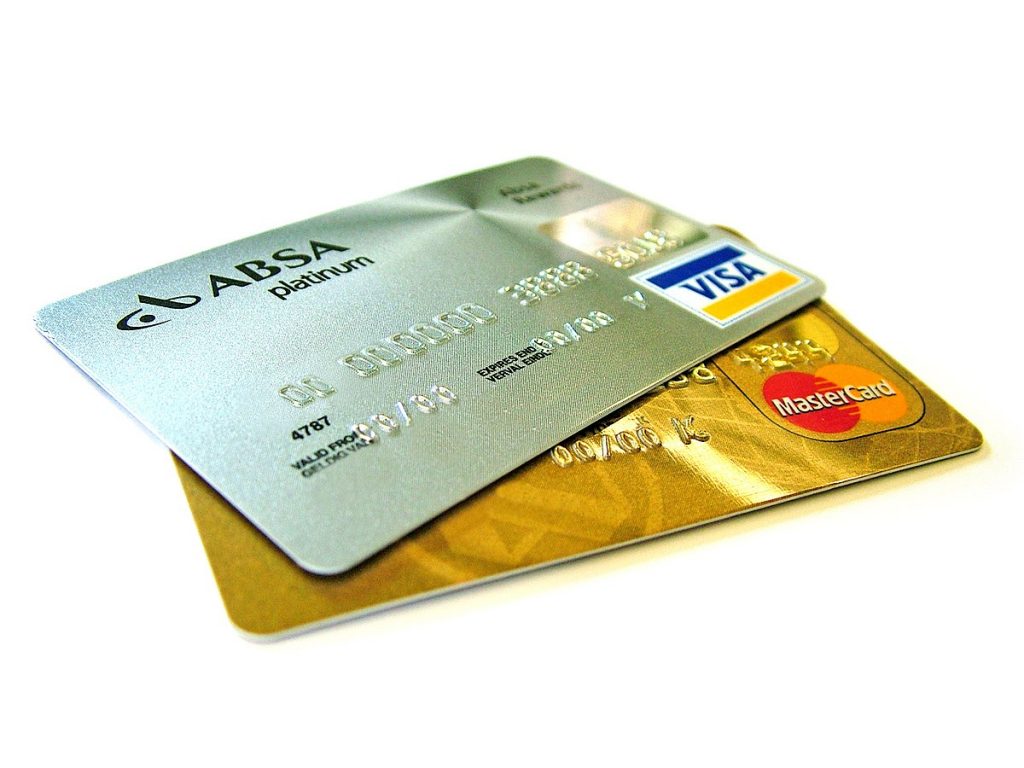When it comes to borrowing small amounts of money for personal finance use, consumers are usually faced with the same question – would it be better to ask my bank to provide me with an overdraft, or should I take out a credit card instead? There are positives and negatives to both solutions, and it’s not always obvious to know which way you should proceed. Which one will lead to you paying the most in interest, and which is better for you in terms of your credit record and status for further lending?
There’s no simple right or wrong answer to this because the terms of any credit card or overdraft arrangement offered to you will be based on your current credit status. We have no way of knowing your credit status, and so we can only offer you general advice – but we can give you the general positives and negatives of each approach, and hopefully help you to make up your mind.

How Much Money Are You Looking To Borrow?
This question is enormously important because it will dictate how long it’s likely to take you to pay the money back. The longer it takes you to pay the money back, the longer you’ll be in debt for – and therefore, the more you’ll pay in interest charges. If it’s quite a large figure, you might be better served taking out a credit card. This is because credit cards have a minimum required repayment each month, and so you’ll have a structure for paying the debt back. Without that structure, you run the risk of being trapped in your overdraft – a process whereby you get paid each month, but end up running back to the bottom of your overdraft because you don’t have a contractually required minimum repayment. Overdraft borrowing can become a spiral, and it’s sadly a reality for millions of people.
What’s Your Current Credit Status?
Your current credit status will determine the terms by which a credit arrangement will be offered to you, if any at all. If you have a very clean record, there’s a chance that you might be offered a zero percent rate on a credit card. Should this option become available to you, it usually makes good sense to take it. The reason for this is obvious – it’s because you won’t spend a single cent or penny in interest so long as your debt is repaid within the 0% interest time limit. The amount you’re looking to borrow is relevant to this. If you know you can pay off whatever you’re borrowing within six months, and you can get a card that doesn’t charge any interest for six months, you’re looking at the best possible lending terms. Some people even use this method to clear off their existing overdraft debt.
Does Your Income Vary?
If you do a steady job and receive a steady salary, you don’t have to worry about this. If, on the other hand, your salary is partially commission-based or you’re self-employed, you might not be able to rely on receiving the same amount of income each month. This makes calculating your finances a little like playing Starburst, where you’re gambling on whether or not the money is going to be there when you need it. It also makes repaying debt a bit like online slots, too – you keep putting money in, and you know you’ll get what you want eventually, but you don’t know exactly when that moment is going to arrive. Unfortunately, credit card lenders aren’t big fans of online slots. They generally don’t gamble at all, and they won’t offer favorable credit card terms if you can’t guarantee the regularity of your repayments. If your income varies, and overdraft might make more sense because you’re free of the burden of having to meet a minimum contractual repayment every month.
Do You Have Further Lending Ambitions?
You might only be looking to borrow a small amount now, but do you have other lending or borrowing ambitions in the short or medium-term? Do you want to take out a mortgage in the near future, for example, or do you want to purchase a car on finance? If so, you’ll be wanting the best possible deal at that time, and so the borrowing decisions you make right now will have ramifications. If you go into an overdraft and stay within it for an extended period of time, it looks much worse to a potential lender than taking out a credit card and keeping to your agreed repayments. In fact, taking out a credit card and demonstrating that you can make the agreed repayments can even improve your credit score, making you a more attractive prospect to potential lenders.

How Stretched Is Your Budget?
Let’s face it – if you were one hundred percent comfortable from a financial point of view, you wouldn’t need to borrow small amounts of money because you’d be able to pay for whatever you wanted from savings. We appreciate that no matter what method of borrowing you choose to proceed with, paying it back is probably going to place a financial demand on you. You probably want to get the balance paid back as quickly as possible so you can get back to your normal financial situation. For this reason, you may want to lean toward an overdraft. This is because the interest rate charged against an overdraft is almost always lower than the interest rate charged against credit card borrowing. Having more interest to pay means larger repayment, and usually a longer-term, too. If you want a convenient small loan and want to repay it on your terms at minimal cost, an overdraft might be the best way to do it.
Taking a credit card is generally a better solution than taking out an overdraft. You have a better structure for repayments, it’s better for your credit file, and it might even be possible to do it without paying any interest at all. If you have a variable income, though, or you’re worried about your ability to make contractual repayments, it might make more sense to go with an overdraft.
We hope this article has been useful to you. Please note that we don’t know your personal financial circumstances, and therefore we are unable to provide you with tailored financial advice. This article cannot be construed as financial advice, and should not substitute for the same. If you have financial concerns or want advice on borrowing, seek out the services of a qualified financial adviser.
Categories: Credit Cards
 How to Find the Best Credit Cards Offering Travel Rewards
How to Find the Best Credit Cards Offering Travel Rewards  The Difference Between Business Credit Cards and Business Lines of Credit
The Difference Between Business Credit Cards and Business Lines of Credit
Leave a Reply